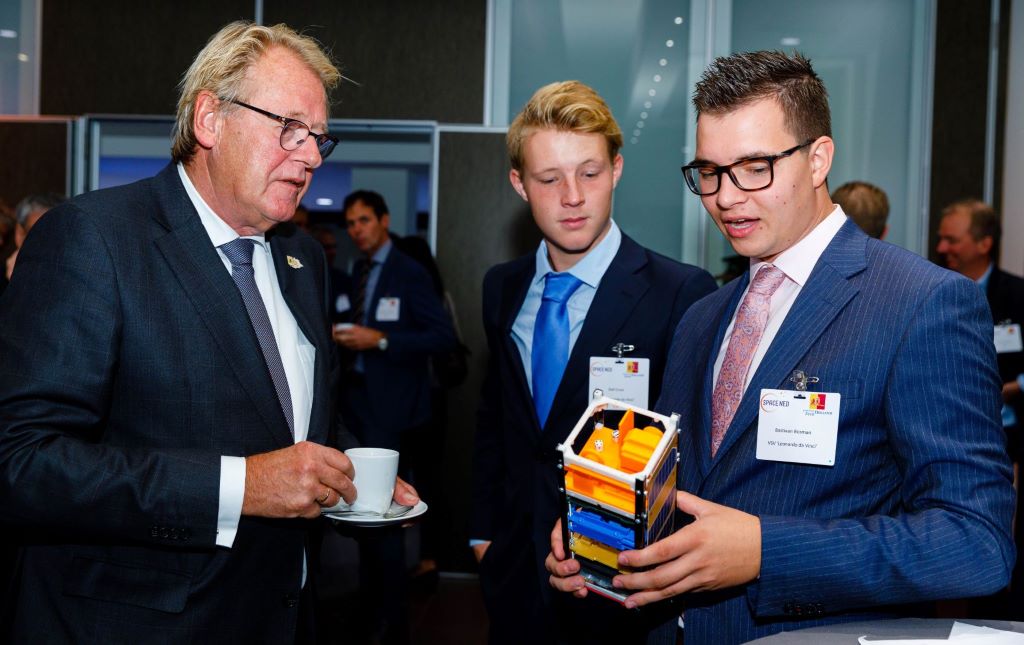It is almost ready, the Leonardo da Vinci study association’s anniversary satellite. Now all that remains is the launch. For this, a crowd funding campaign has been started.
TU students Stef Crum and Bastiaan Bosman pitch the Da Vinci satellite in The Hague (Foto: VSV Leonardo da Vinci)
Normally, it is more expensive, but because of all the goodwill, the Da Vinci satellite can go into space for only USD 80,000 later this year. Despite many contributions from various quarters, the student team building the jubilee satellite is still EUR 30,000 short. Over the next six weeks, the Aeronautical Engineering students hope to raise that amount through a crowd funding campaign.
The construction of the satellite on the occasion of VSV Leonardo da Vinci’s 75th anniversary started a year ago. The idea was to build an educational satellite that school children could work with. “We wanted to bring space technology into the classroom and the satellite closer to children’s everyday life,” says Team Manager Mitchell de Keijzer in a Zoom meeting.
On behalf of the education committee, Seppe Delegin Willekens explains that there are two different projects (payloads) on board, for primary and secondary education. Primary school children mainly want to play, and that is what the dice payload is designed for. They click a button and a machine in orbit lets three dice float freely for a short time and then clamps them against the window. The dice machine, made by students from the Leiden School of Precision Mechanics, is ready. It will soon be tested in zero gravity in a number of parabolic flights in TU Delft’s Cessna.
For secondary schools, a demo has been built using a memory card. Students can upload an image to the satellite. It is stored in the memory card that is exposed to cosmic radiation. After a few orbits around the earth, they can download the image again, which is likely to have been affected in some way. “Depending on the coding, it may have stripes, faded colours or holes in it,” explains Technical Manager Stef Crum on the effects of a bit-flip. The students can thus experience the effects of high-energy radiation in space for themselves.
Delegin Willekens explains that AE students have developed educational programmes, called ‘missions’, to support teachers.
However, the satellite has to go into space first. For help, the study association knocked on the door of the TU Delft University Fund that has experience with fundraising actions. The students are targeting their campaign at students, alumni, space associations and anyone else who thinks it is an appealing initiative. The campaign, which starts on 26 April, will run until about mid-June.
Do you have a question or comment about this article?
j.w.wassink@tudelft.nl


Comments are closed.